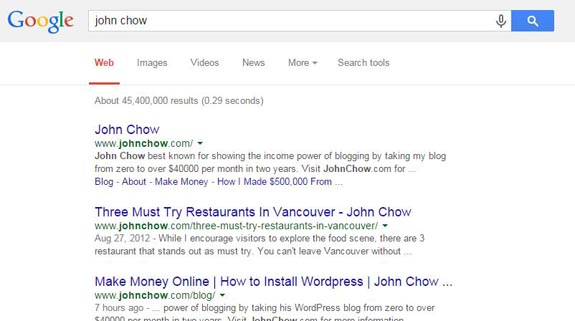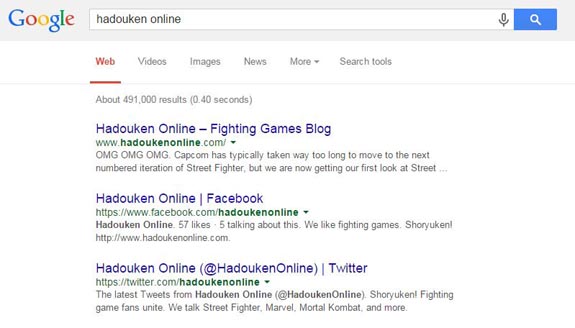Live by the Google and you’ll die by the Google. Even if your online business hasn’t come to rely on search engines to drive your most critical web traffic, it’s undeniable that being ranked highly in Google for your target keywords and keyword phrases is positively invaluable. And that’s why there are so many people out there who keep trying to game the system and that’s why Google keeps slapping them back down with algorithm updates.
Yes, it is true that the only way you’ll survive pandas, penguins and hummingbirds is to keep providing great content and true value to your visitors, but you also don’t want to shoot yourself in the foot with poor SEO practices. Google is incredibly secretive about their ranking factors, but Matthew Woodward has gathered together the best information on what will help and hurt your Google ranking prospects.
He says “with great confidence that the vast majority of [Google ranking factors] are covered” in his extensive blog post. It’s quite the long read, so I’ve summarized some of his most important points here. What’s most important to note is that Google looks at all these factors as an aggregate, so getting positive ones on one aspect could easily nullify the negative impact of others.
Domain
Exact match domains and keyword rich domains used to be incredibly important, but they can be both blessings and curses in the modern age of SEO. The exact match could help with relevance, but it could also get caught in the filter. The same can be said about country TLDs, helping with local relevance but possibly hurting wider reach. Domain age and history are still of great value.

Page Level
For individual pages on your site, keywords are still critically important. They should be in the URL, title, meta description, relevant heading text, and in the main body text. The content needs to be original, fresh and updated. Longer content tends to rank higher and faster-loading sites are favored.
You will want to avoid duplication in your meta descriptions and title tags, again emphasizing the importance of unique content. Don’t stuff keywords in your meta tags and forget about keyword density. Affiliate links are fine as long as they’re nofollow, but don’t overdo it.
Site Level
There are some basic pages that every website needs: a contact page, a privacy policy and an about page. XML and HTML sitemaps help too, as does mobile optimisation, silo site structure and breadcrumb navigation. And as much as we would like to keep ads above the fold for conversion, being too “top heavy” can hurt your SEO.
Backlinks
The relationship with anchor text is a strained one. It should be relevant and descriptive, but overusing generic or branded anchors can get you slapped by Penguin. Inbound links should come from relevant, trusted sources (including direct competitors!) and having a positive link sentiment makes a difference. Interestingly, if the source of the link also has the keyword in its title, that further bolsters your site’s value for that keyword, though links should come from diverse sources and the older the link, the better.
Links inserted by the site itself, like in the body of a blog post, are more valuable than links that are created by user-generated content, like comments and forum posts. And even though links from Wikipedia are nofollow, they still matter.

And, as before, buying and selling links will get you punished (if you get caught). Reciprocal linking will also be punished, as well as when more of your inbound links are coming from unrelated sites.
User Engagement
Interestingly, the higher click-thru rate (CTR) you get on the SERP, the more your ranking will improve. Your site is also helped by low bounce rates, more pages viewed per visit, more direct traffic, more returning visitors, and more user comments.
Social Signals
Compared to many of these other ranking factors, social signals is relatively new when it comes to SEO, but Google is clearly paying attention. They like to see lots of tweets, Facebook shares, Facebook comments, Google +1s, Pinterest pins and other clear indications of social interaction with your content. Having a strong presence on these networks is helpful too.
Brand Signals
Related to the backlink section, having inbound links that are branded (like “Michael Kwan blog” rather than just “blog”) provide a strong signal to Google that you matter. If more people are searching for your brand, Google recognizes that your brand matters too. And even if someone else mentions your brand without an actual link, that’s still a signal to Google. If you have a physical business, having a Google+ listing helps (until you get negative reviews).
Are there any other major Google ranking factors that you feel are missing from this list?
Go Download John Chow’s New eBook and Live The Dot Com Lifestyle!!
